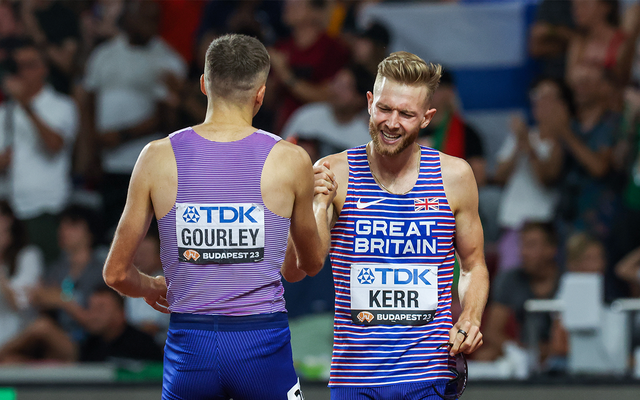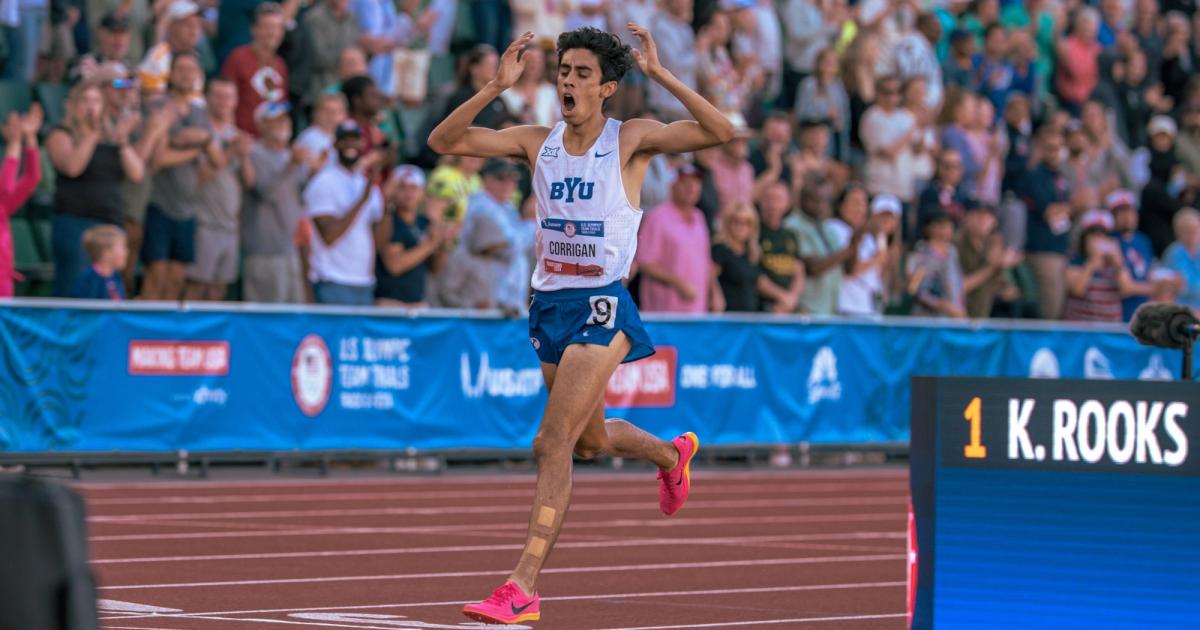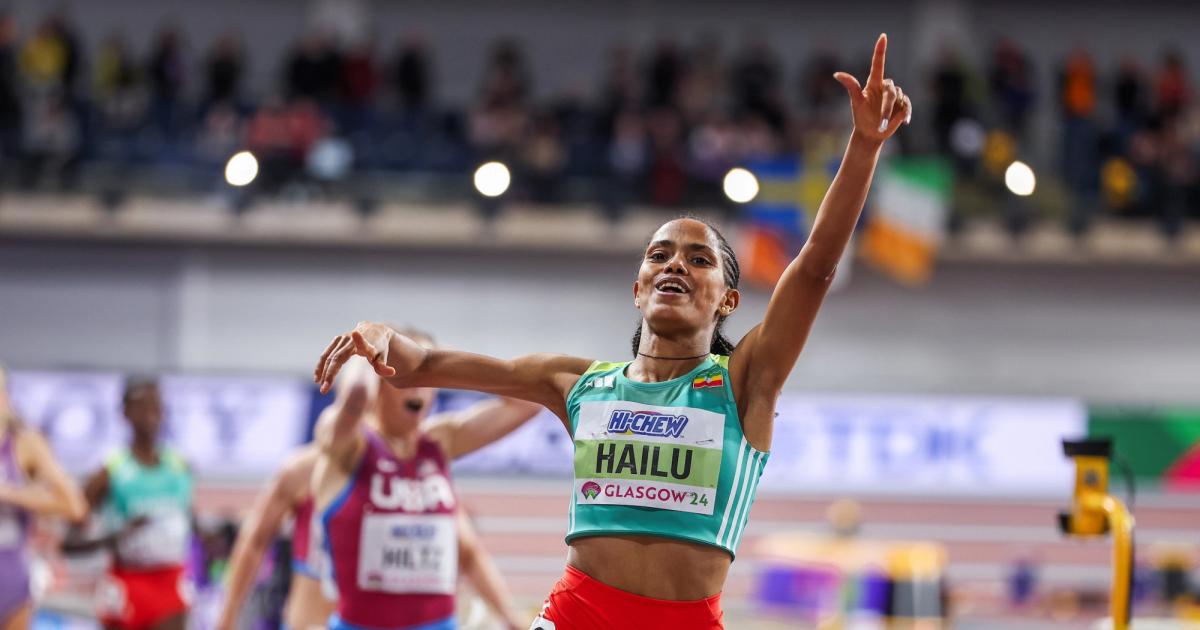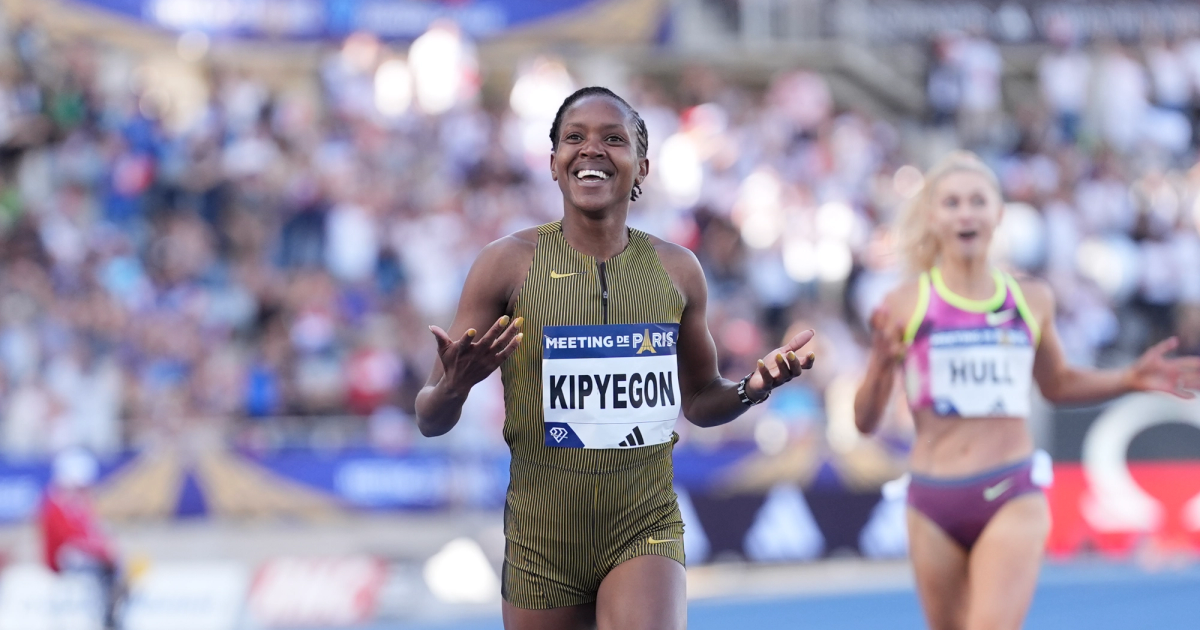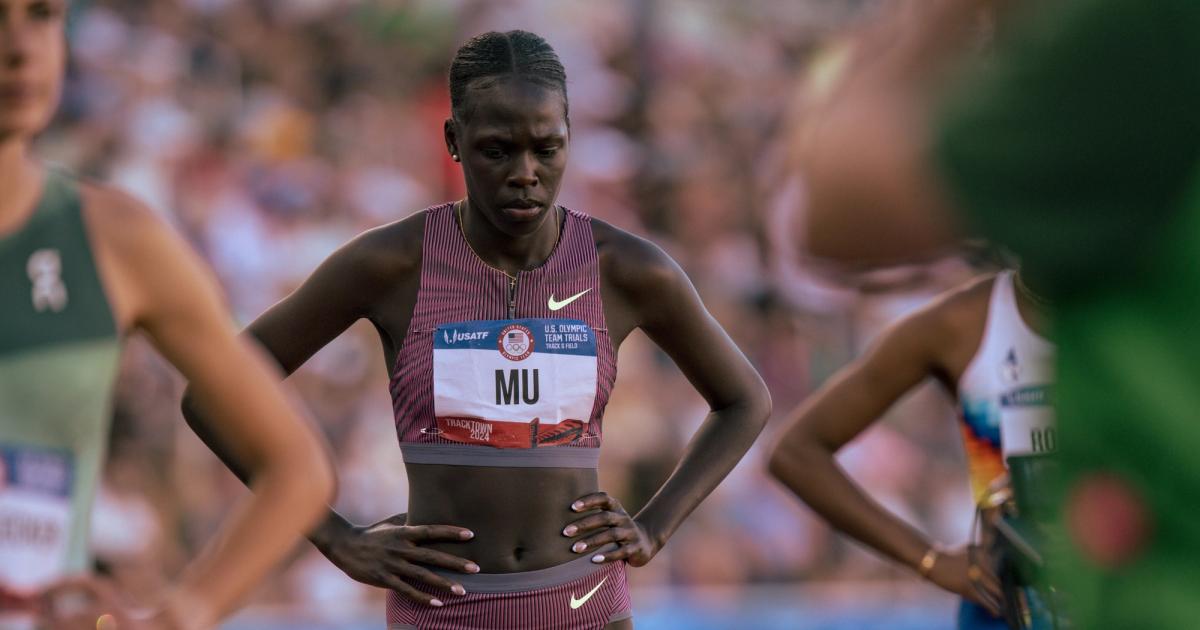By Preet Majithia
July 9, 2024
The British Olympic Trials were held on June 29th and 30th in typical rainy conditions in Manchester, Northern England. Our preview covered the runners and riders in many of the key events and what they needed to do for selection, but in fact it was not those races that necessarily provided the greatest drama.
Having failed to mention her in the preview at all, I wanted to shout out Molly Caudery up front, who jumped 4.83m at the Trials in less than ideal conditions to underline her gold medal potential in the pole vault.
Steeplechase heartbreak
The men’s 3000m steeplechase was perhaps the most dramatic event of the weekend, encapsulating both the joy and the heartbreak of these Olympic trials. There are four high quality steeplechasers who would normally be competing fiercely for the British title. However they had all run just shy of the UK Athletics (‘UKA’) ‘B’ standard of 8:18.50 which would allow them to be considered for selection based on a world rankings invite.
Geoff Wightman (father of Jake) coaches one of the athletes and had coordinated for him to lead out the race for 600m and then aim for the field to try and work together to go after this standard. At 1200m, the 31-year-old Phil Norman took the lead and was the only one who was able to keep up with the pace. It was the loudest noise of the day as he was coming down the home straight, eventually finishing in an agonizing 8.18:65, just fifteen hundredths of a second off being able to go to the Olympics.
It was the fastest steeplechase by a Brit since 1992 and an epic performance, which begs the question: why was the standard set so high? There was the joy of becoming British Champion, and running a great time, but there was also heartbreak as he saw the clock and knew his Olympic dreams were shattered.
400m hurdles: ‘I am Spartacus’
The 400m hurdles provided drama of a different sort. Alastair Chalmers was by far the best competitor. However to be considered for selection, he had to run under the Olympic standard of 48.70, having run an agonizingly close 48.76 at the European Championships.
What happened instead was the gun went off in the final and he had a rather blatant false start. He was immediately disqualified and his chance at the Olympics was gone.
Anywhere else and the federation would have undoubtedly called it a faulty start and let him run. After a great deal of discussion with the official he eventually ran under protest. Running angry, and likely fueled by adrenaline, he ran a massive personal best of 48.53. But that did not matter, he remained disqualified in the official results so the time would not be official. An hour or so later he bounced into the stands waving a piece of paper and screaming loudly – the disqualification had been overturned, with the help of his fellow runners! His coach explained that his fellow runners had corroborated that there was a lot of noise at the start, and one of more of them, in an ‘I am Spartacus’ type moment, claimed that they thought that they had in fact false started instead.
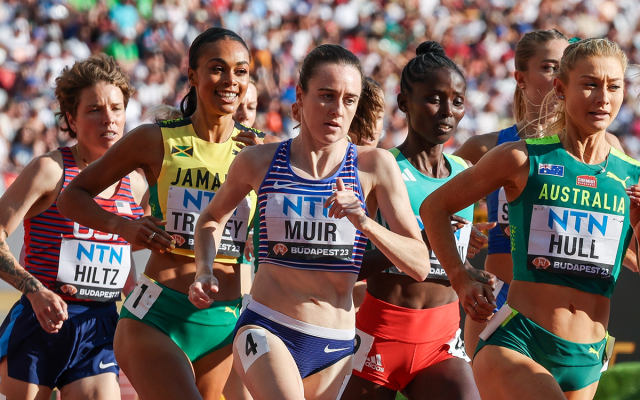
Kevin Morris / @kevmofoto
Middle distance madness
Break out performer Georgia Bell took the women’s 1500m title in a tactical race ahead of Laura Muir who lost the British title for a second year in a row. However, rumors of Muir’s demise were proven to be greatly exaggerated, with Muir running a British record of 3:53.79 at the Paris Diamond League the following weekend, and Georgia Bell breaking four for the first time to run 3:56.54 not far behind her.
On the men’s side things went broadly to form, with Neil Gourley taking the win in the 1500m and George Mills booking his spot in second. The only other qualified athlete, Adam Fogg, wound up in third and missed out on the team, with Josh Kerr being guaranteed the third discretionary spot for the Olympics, as defending World Champion. This result also meant there was no way for the selectors to pick 2022 World Champion Jake Wightman on the 1500m team, leaving his selection hopes to the 800m.
The Brits decided that they needed to compete with the US in terms of having a dramatic fall in the 800m, but on this occasion it was Josh Kerr colliding with Elliot Giles while trying to pass him on the inside, taking them both out of the race. World bronze medallist Ben Pattison and enigmatic talent Max Burgin took the first two spots, leaving the selectors to decide between Giles and Wightman (who was not competing and given a medical exemption) for the third discretionary spot. Wightman is the fastest in the UK this year, while Giles has been consistent over 800m, but didn’t have a great European Championship final where he was expected to compete for medals. This may have swayed the selector’s decision as they went with Wightman, a proven medal winner, when the team was subsequently released.
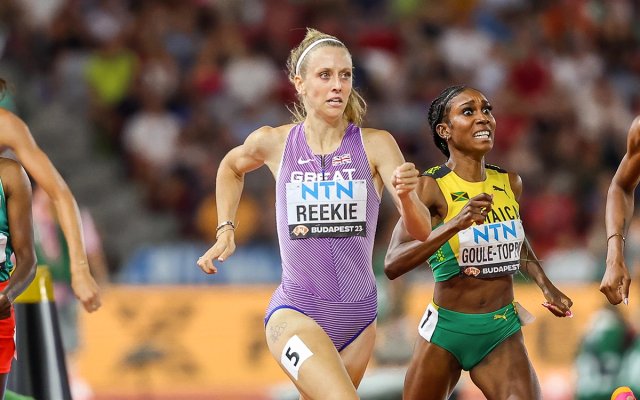
Kevin Morris / @kevmofoto
On the women’s side there was perhaps the most impressive performance of the weekend, with 17-year-old Phoebe Gill showing immense maturity, controlling her heat to win it in 2:05 while her competitors in other sections were running 2:01 and 2:02. Then in the final, Gill led from gun to tape, not at all intimidated by the presence of Olympic fourth-placer Jemma Reekie on her shoulder, and clocked another 1:58 to win the British title and book her ticket to Paris. With Athing Mu out and Mary Moraa not looking at her best this season, whisper it quietly, but there may be more than one British medal in the women’s 800m in Paris.
The men’s 5000m was interesting, as it was won by James West, who was not qualified for the Olympics and couldn’t be selected, whilst Patrick Dever managed to book his spot on the Eurostar as he just missed out on a rankings invite in the 10,000m. That meant there were two discretionary spots in the 5000m, between Jack Rowe who placed third, George Mills who ran the 1500m, and Sam Atkin (fastest Brit this year) who was given a medical exemption due to a bout of gastroenteritis. It was unfortunately Rowe who missed out.
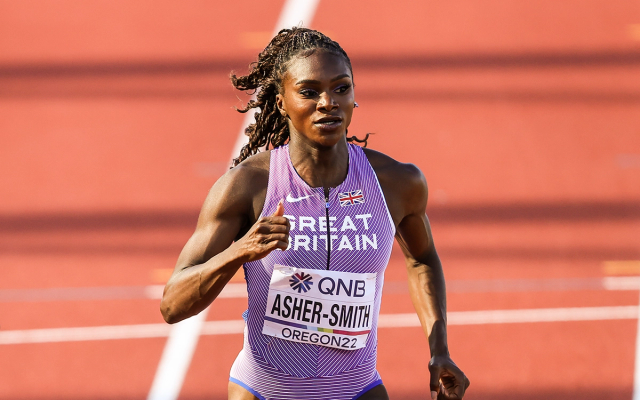
Kevin Morris / @kevmofoto
Sprints
On the sprint side, things went broadly to form and perhaps the best result was Dina Asher-Smith running 22.18 over 200m in poor conditions and into a headwind. However, spare a thought for Amy Hunt, who has been the third-in-form sprinter for GB this year, coming in second behind Daryll Neita in the 100m and third behind Dina and Daryll in the 200m. Hunt was well within the rankings quota for Paris, but was not selected because she hadn’t run the times, so Imani Lansiquot (third in the 100m) and Bianca Williams (fourth in the 200m) were selected ahead of her.
On the men’s side, NCAA 100m champion Louie Hinchliffe came and delivered, winning the British title and booking his spot in Paris, alongside Jeremiah Azu, and Zharnel Hughes, who was granted a medical exemption from competing.
The 400m also went to form, with NCAA star Amber Anning and European silver medallist Charlie Dobson winning the 400m. Laviai Nielsen continued her impressive form, and in an unusual show of selection generosity from UK Athletics, Victoria Ohuruogu was selected in spite of finishing sixth in the final and not yet showing the form this year that had her dipping below 51s in 2023. Matthew Hudson-Smith, the Budapest silver medallist, was guaranteed selection so ran in the 200m and came out on top.
Selection controversy
Ultimately, for those who have read the selection policy (see our short explainer in the preview), the British team selected was broadly as expected, with the only tough decisions for selectors being the choices made in the men’s 800m and 5000m. They were relatively generous with the ‘showing current form’ aspects of the policy for several athletes who had the relevant standards but hadn’t necessarily shown their best form over the last few months.
However the controversy was in the non-selections that were based on the strict application of the policy. The requirement to have the Olympic standard in the women’s 5000m meant that Hannah Nuttall, who was less than a second away from the standard this year, and ran a brilliant race to win at the Trials, was not selected. Phil Norman in the steeplechase missed out on the UKA ‘B’ standard by 0.15s, and it is unclear why such a small margin, relative to a standard set over a year in advance, should determine worthiness of going to the Olympics.
For the field events, where the majority of Olympic standards are set at a very challenging level, UKA did set ‘B standards’ but in several events set them insanely high. Perhaps the most self defeating of these is in relation to hammer thrower Jake Norris, who is clearly an incredible talent and well capable of meeting the aims of the policy: sending athletes capable of reaching the top-eight in their events. There appears to be little rationale for setting the standard so high. His tweet explaining his performances relative to the aims of the policy demonstrates the inconsistency. There are many athletes with far slimmer chances of making finals or medaling that have been selected in other events.
The desire to set a clear policy to minimize controversy and prevent appeals at the point of team selection appears to have become somewhat self-defeating for UKA. With World Athletics saying that they want 50% of athletes to qualify via rankings quota for the Olympics and World Championships, and UKA routinely denying such individuals selection, and UKA doubling down on their policy aims, the controversy looks set to continue for years to come.
UKA then tried to explain the selection policy with this op-ed in Athletics Weekly, but this only led to worldwide criticism of the approach. Perhaps the statement that generated the most controversy is this: “There is also an issue that larger teams can dilute the level of support given during the championships to our genuine medal contenders, and that there is a demotivational effect on the team as a whole when the first few days of the championship are dominated by athletes failing to qualify from their heat or pool.”
The concept of a high performance team is not new to sport, but track and field is not a single sport, or even a team sport. It is multiple separate sports, and it is hard to see how a steeplechaser not managing to get out of their heat would impact Josh Kerr’s medal chances in the 1500m. Suggesting that athletes who work hard to achieve qualification for Olympics or World Championships are not inspirational, take away support from others or ‘demotivate’ their fellow team members seems to be an insult to the hard work those athletes put in.
Reaching the top 40 in your event in the world is no mean feat given the level of participation in track and field around the world. In many events where the British team does not currently have a representative in medal contention, denying selection opportunities for those trying to get to that next level hardly encourages others to take up that event if they think this is how the federation is going to treat them as they work to reach a world class level. They would also miss out on the visibility and performance opportunities to attract sponsorship to support themselves on their journey. As we pointed out in relation to the European Championships selection, it all seems rather short-sighted and not in the long-term interest of the sport in the UK.
However it is worth bearing in mind that UK Athletics is funded by UK Sport, and the funding allocated over the course of each Olympic cycle is based on a formula that derives from medal success relative to the amounts invested. This perhaps drives the focus solely on medals and top eight finishes that could convert to medals in the future, and with the lack of external sponsors in the sport in the UK, it has driven the bureaucrats to adopt this approach to ensure that the funding continues. It’s also worth noting that the majority of top UK athletes are on funding from UKA and so may not be able to speak out, which is why you will have seen relatively little comment from them in recent days in spite of the controversy
I will therefore give UK Athletics the benefit of the doubt that they are not entirely to blame for the state of affairs, but with the way the sport is evolving, with the level of competitiveness in different events changing over the course of a season, there is a need to allow for this in the selection policy, and to have a more forward looking view that allows for future development of the sport rather than relying on superstars appearing out of nowhere. Otherwise I wonder if there will be many athletes who will be looking through their family trees for a connection to another country that might be willing to give them more opportunities.

Preet Majithia
Preet is a London based accountant by day and now a track fan the rest of the time. Having never run a step in his life he’s in awe of all these amazing athletes and excited to help bring some attention to the sport.
